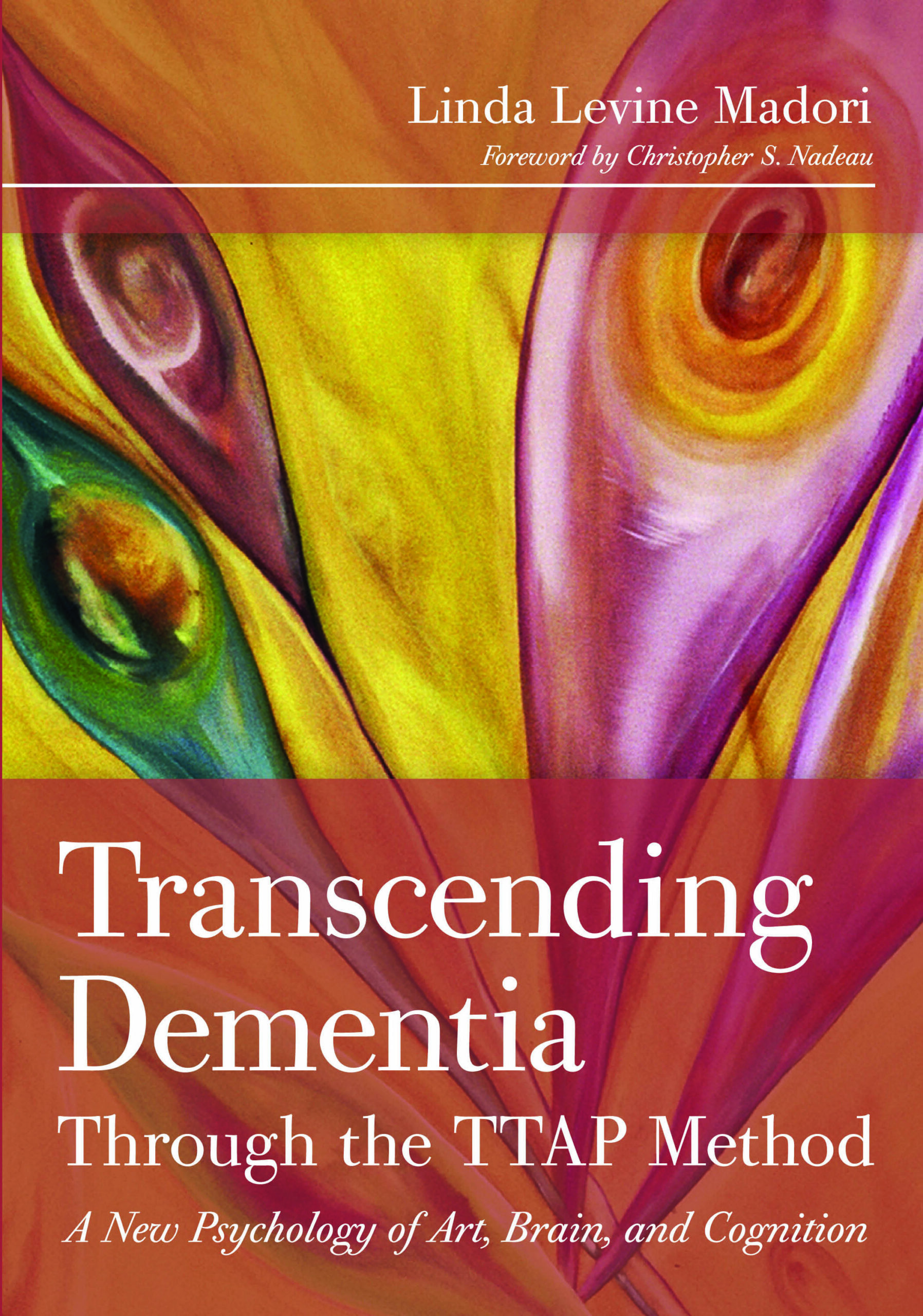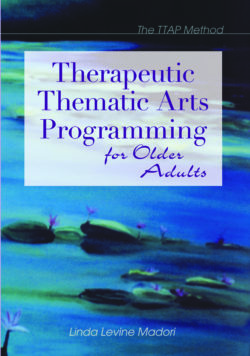 The brain-stimulating approach known as Therapeutic Thematic Arts Programming (TTAP) has a proven record of improving the lives of people with dementia by increasing their engagement and functioning. In Transcending Dementia through the TTAP Method: A New Psychology of Art, the Brain, and Cognition you now have all the tools and instructions for putting this innovative and life-affirming approach to work in your own care setting. You too can successfully invigorate the minds and hearts of people living with this challenging cognitive disease.
The brain-stimulating approach known as Therapeutic Thematic Arts Programming (TTAP) has a proven record of improving the lives of people with dementia by increasing their engagement and functioning. In Transcending Dementia through the TTAP Method: A New Psychology of Art, the Brain, and Cognition you now have all the tools and instructions for putting this innovative and life-affirming approach to work in your own care setting. You too can successfully invigorate the minds and hearts of people living with this challenging cognitive disease.
Participation in the creative arts has been shown to promote cell growth that enhances the brain’s ability to learn and recall new information, create new ideas, and make new connections. Using 12 separate forms of creative expression—ranging from sculpture and painting to physical movement and mental imagery—TTAP builds on themes in an integrative way that helps each individual with dementia draw upon memories, feelings, and intellectual reserves that promote positive self-regard and active social participation. Sample activity protocols guide you through the process of engagement to help you quickly master the steps.
Activities using the TTAP Method® can provide
- significant stimulation and integration of multiple brain regions
- enjoyment, engagement, creativity, relaxation, and a sense of purpose for people with even advanced dementia
- an easy-to-follow framework that allows infinite variations on themes and person interests
- complete documentation for tracking and evaluation
- opportunities for one-on-one or group programming
By blending the principles of art and therapeutic recreation with the latest findings in brain research, Transcending Dementia Through the TTAP Method presents an exciting new psychological taxonomy that captures the dynamic interplay between brain functioning and expressive and emotional stimulation.



admin –
“Transcending Dementia through the TTAP Method is must reading for the entire Alzheimer’s community. This book will help dementia professionals, Alzheimer’s caregivers, family, friends and anyone touched by Alzheimer’s to understand and cope with Alzheimer’s disease. More importantly, the book contains a road map on how to improve the quality of life, and how to communicate effectively with any person who is deeply forgetful.”
—Bob DeMarco, Founder, Alzheimer’s Reading Room
admin –
“Every administrator serving the healthcare industry recognizes the important balance between providing optimal care while keeping healthcare costs down. The TTAP Method has been proven here to do just that! After implementing the TTAP Method, the hospital calculated $160,000 in direct healthcare cost savings after the first year! We highly recommend reading this new book and implementing the method immediately.”
—Trish Jones-Bendel, MSN, RN, Chief Nursing Officer, Linden Oaks at Edward Hospital, Naperville, IL
admin –
[This book] has brought knowledge to the Therapeutic Recreation Staff which has enhanced the residents’ quality of life at Bergen Regional Medical Center. I recommend this book for families who have loved ones with Alzheimer’s disease. [It] provides a new approach on how to deal with this disease and the benefits of using the TTAP Method.”
—Kristin Mullins, MA, CTRS, Director of Therapeutic Recreation, Bergen Regional Medical Center, Paramus, NJ
admin –
“Brilliant and a must-read for practitioners today. This is an important clinical text for anyone engaging with Alzheimer’s patients. Dr. Madori has thoroughly researched her subject and made her case for the efficacy of the TTAP method. Family caregivers would also benefit greatly from instruction in this approach.”
—James Huysman, PsyD, LCSW
admin –
“Having worked in dementia care for many years, I was thrilled to help bring Dr. Linda Levine Madori’s Transcending Dementia Through The TTAP Method to aging network personnel around New York State. The New York State Office on Aging supported a educational grant to over 300 Healthcare participants to complete a one day certificate TTAP Method Training program in 2011 at six locations around the state. The Therapeutic Thematic Arts Programming training was the most successful course of the year. Feedback documented that the trainees appreciated the content as well as the instructor; one trainee noted, “Presenter was knowledgeable, utilized active experiences & related to each discipline present.” I hope you enjoy Dr. Levine Madori’s recent book and bring active treatment for dementia care to adult day programs, in-home services, assisted living centers and nursing homes.”
—Erin Purcell, Aging Services Representative, New York State Office for the Aging
Administrator –
“[Levine-Madori’s] focus on themes and the utilisation of a multi-model approach has much to recommend it, providing opportunities for participants to engage in arts activities which stimulate the senses. The book provides a clear and detailed description of the TTAp method and would offer a useful complement to other arts-based approaches used to engage with and promote the wellbeing of people with dementia.”
—Claire Craig, Cambridge University Press
Lmo9hpu@gmail.com –
Hi I’m going to try this I work in the uk in a care home and I like this idea and will copy it it’s the first time I’ve heard of the tap method , I’m going to read her book and see how I get on Janet Crawley